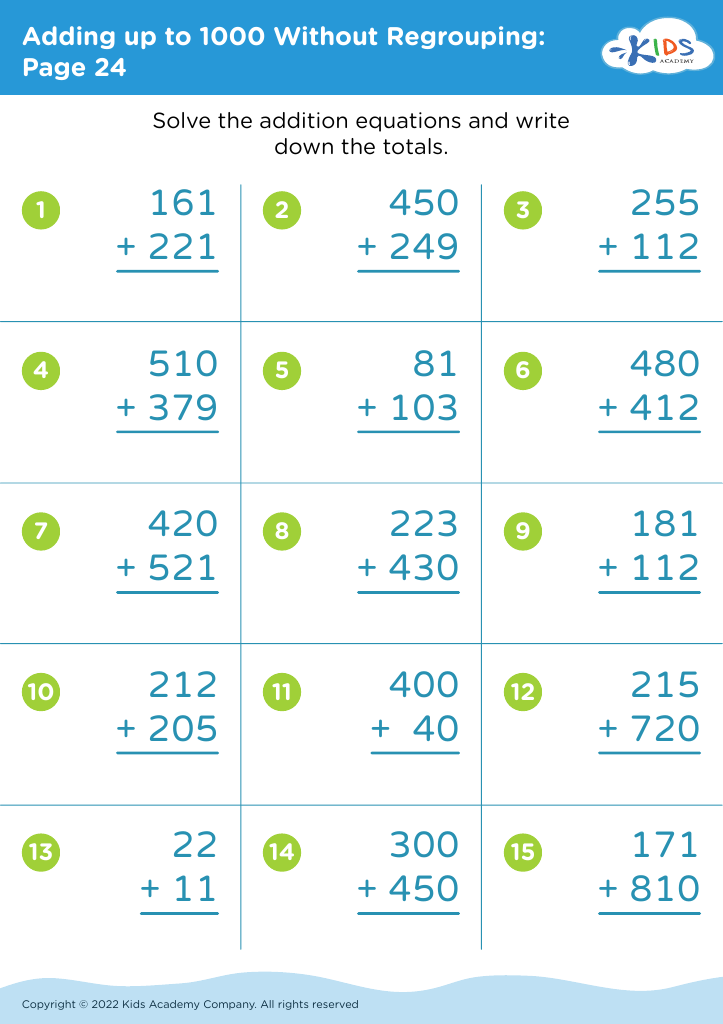Improving math skills Adding up to 1000 Without Regrouping Worksheets for Ages 4-9
3 filtered results
-
From - To
Enhance your child's mathematical abilities with our "Adding Up to 1000 Without Regrouping" worksheets, designed for ages 4-9. These engaging resources help young learners master addition concepts by practicing simple calculations without the complexity of regrouping. Our worksheets promote confidence in math skills while making learning fun and interactive. Each page is filled with vibrant illustrations and age-appropriate exercises that keep children motivated. Watch as they improve their addition fluency, strengthen number sense, and build a solid foundation for future math success. Ideal for classroom use or at-home learning, these worksheets are a perfect way to boost math skills in a playful context!
Improving math skills, particularly the ability to add up to 1000 without regrouping, is crucial for children ages 4-9 for several reasons. First, this foundational skill promotes number sense, helping kids understand the value of numbers and their relationships. Mastery of addition is essential for progressing in mathematics, impacting their performance in future concepts such as subtraction, multiplication, and even geometry.
Secondly, enhancing math skills boosts a child's confidence. When children can successfully perform calculations, they are more likely to engage in math activities, fostering a positive attitude toward the subject. This early confidence can significantly influence their willingness to tackle more complex mathematical challenges later in their education.
Additionally, these skills encourage critical thinking and problem-solving abilities that extend beyond math. Practical applications, such as managing money or calculating time, arise in everyday life, making strong math skills invaluable.
Lastly, early development in math also prepares them for standardized assessments that often become part of their academic journey. With solid addition skills, children can build a strong academic foundation, leading to better learning outcomes throughout their schooling. Thus, parents and teachers should prioritize these skills to support each child’s overall academic success and self-esteem.

















